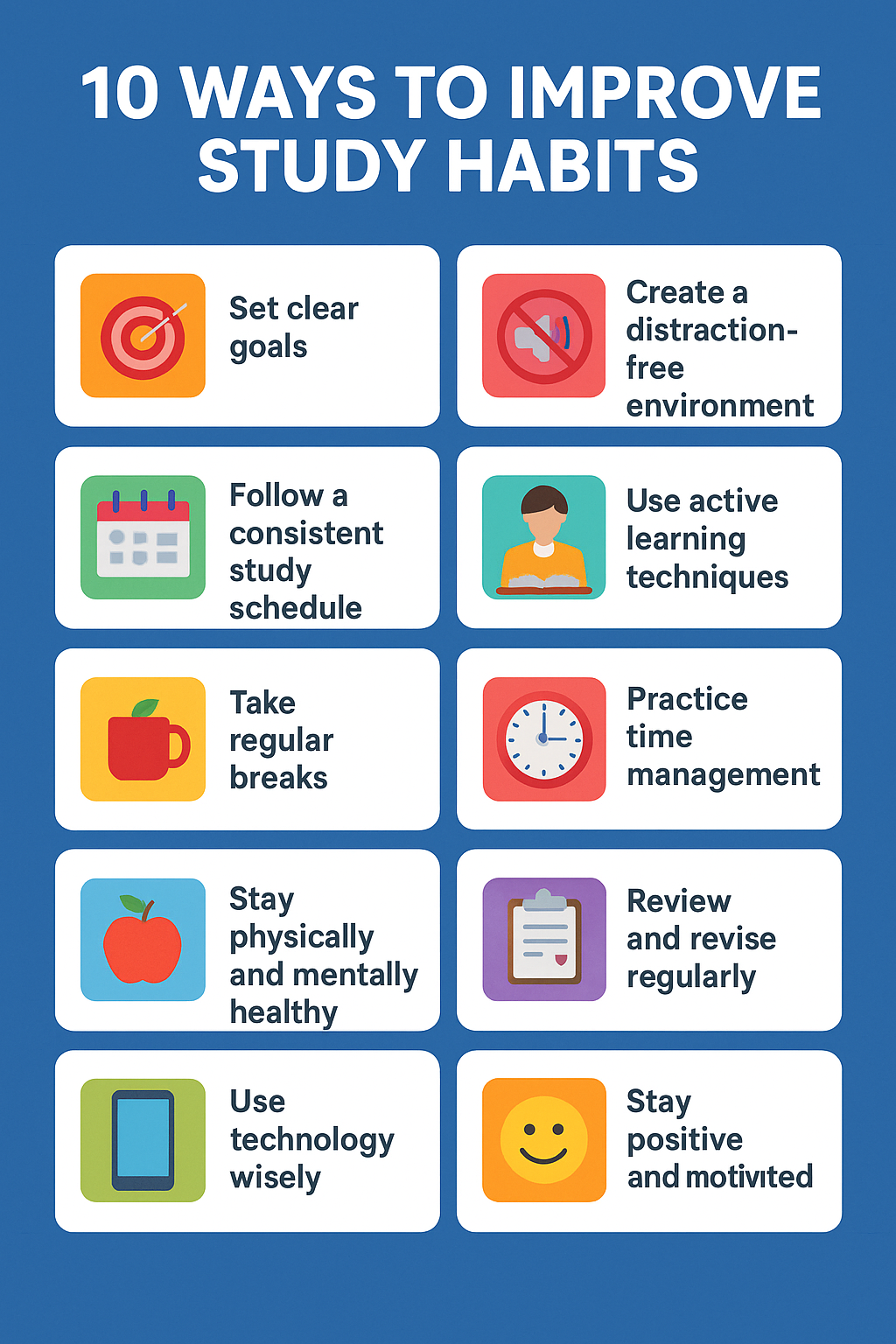
Is It Worth Studying MBBS in China
- 27th October
- 35

Learning is a lifelong process, but mastering how to improve study habits can make a huge difference in your academic success. In today’s fast-paced digital world, it’s not enough to just study hard — you must study smart. Developing better study habits helps improve concentration, understanding, and memory retention, ensuring that every study session counts.
The first step to improving study habits is setting realistic goals. Define what you want to achieve in each study session — whether it’s mastering a chapter, revising notes, or solving practice papers. Goal-oriented studying enhances motivation and keeps you on track.
A quiet, organized, and clutter-free space can dramatically boost your productivity. Turn off unnecessary notifications and dedicate a specific spot for studying. This helps train your brain to focus whenever you sit in that area.
Consistency is the key to success. Set a fixed study routine that matches your energy levels — for example, study during mornings if you’re an early riser. Following a routine helps improve time management and builds discipline.
Active learning means engaging with your material — summarizing lessons, teaching others, or using flashcards. These techniques strengthen your understanding and memory retention far better than passive reading.
Studying for long hours without rest leads to burnout. Try the Pomodoro Technique — 25 minutes of focused study followed by a 5-minute break. This keeps your mind refreshed and improves overall concentration.
One of the most practical ways on how to improve study habits is by managing your time effectively. Prioritize difficult subjects first, divide large tasks into smaller ones, and use planners or apps to track your progress.
Good nutrition, exercise, and adequate sleep significantly influence learning performance. A healthy body supports a sharp mind, allowing better focus and retention during study hours.
Don’t cram at the last minute. Instead, schedule regular revisions to reinforce your memory. Reviewing notes weekly helps transfer short-term learning into long-term knowledge.
Use digital tools like quiz apps, flashcards, and online lectures to make studying interactive and fun. However, ensure you avoid distractions like social media while studying online.
Developing good study habits takes time. Stay patient and reward yourself for small milestones — completing a topic or scoring well in a quiz. A positive mindset fuels consistent learning.
Understanding how to improve study habits is not just about better grades — it’s about lifelong learning. By setting goals, staying organized, and maintaining balance, students can transform their learning experience. The right study habits build confidence, reduce stress, and unlock academic success in every stage of life.